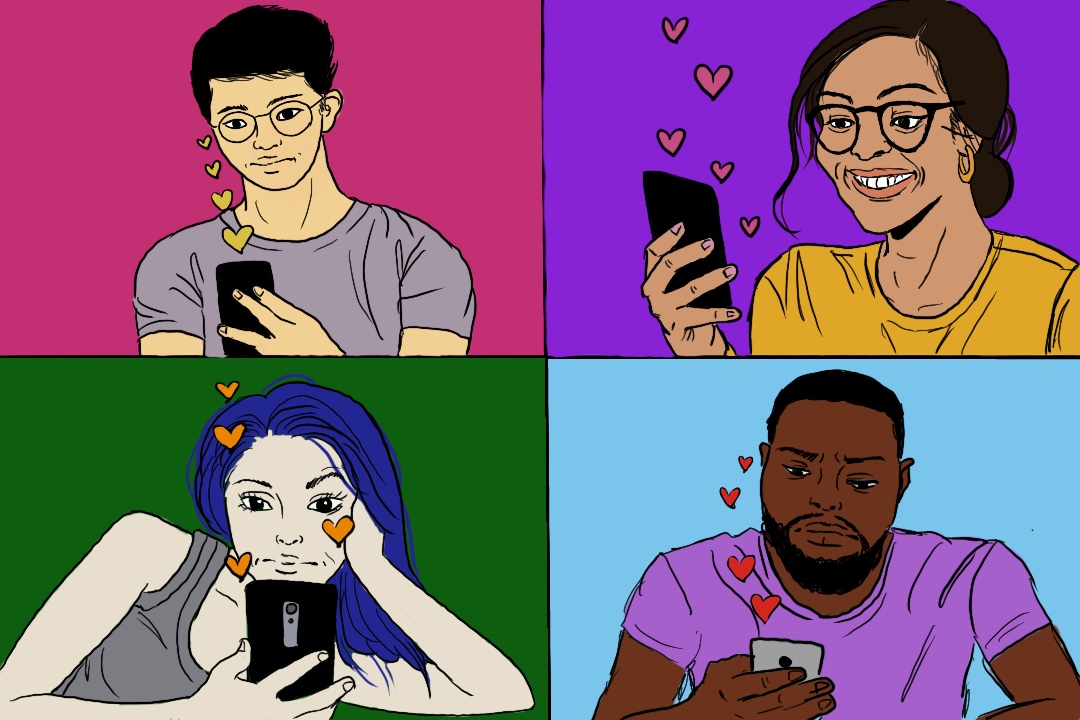Online dating for the internet generation seems to be as common as offline dating. In fact, statistically, it is as common; almost 50 per cent of people aged 18–29 have used an online dating site or app. Despite the racism, bullying, and body shaming that LGBTQ+ people experience on dating apps, the rate at which they use them is even higher.
These statistics have sparked a conversation about how LGBTQ+ people can manoeuvre the pitfalls of dating apps. However, the central topic of this conversation is misguided; it should not be how members of the LGBTQ+ community can adapt their online presence to connect with one another. Rather, the conversation should be about the ways in which our campus community falls short in offering us alternative ways to connect.
Beyond being afforded a safer online space to swipe, students who fit into a binary, heteronormative identity have the opportunity to causally meet each other at the library, in class, through mutual friends, or in a study group. While some LGBTQ+ people may find it easy to do these things, or have been able to self-sort into LGBTQ+ friend groups early in their academic careers, many other LGBTQ+ students find themselves entirely surrounded by heteronormativity.
In my experience, anyone associated with the university uses inclusive rhetoric which tells us that U of T is a safe space for LGBTQ+ students. However, the campus spaces that do exist for us — all of the LGBTQ+ clubs, organizations, and services available at U of T — need to be sought out by doing a lap around the annual club fair or scouring the master list of campus communities.
Unlike our non-LGBTQ+ peers, we do not necessarily have a chance to connect with someone while going through day-to-day life; instead, we go through a whole social process just to find community. We are often asked to attend structured events or mixers that require us to ‘put ourselves out there’ in order to connect, which makes the experience of finding LGBTQ+ community through campus organizations comparable to participating in an extracurricular activity.
Due to the current effort required for students to find their place in on-campus LGBTQ+ communities, it is completely understandable that many may choose to use dating apps despite their known risks. Dating apps are often framed as a way for people — especially LGBTQ+ individuals — to meet people they would not meet otherwise. Unless they’re comfortable repeatedly announcing their sexual orientation or gender identity in pervasively heteronormative spaces, or they’re extroverts with easily charged social batteries and a penchant for small talk, LGBTQ+ students may feel more comfortable meeting people using a dating app.
On-campus LGBTQ+ organizations can play an important role in the lives of students who enjoy participating in social events. I am, on occasion, one of those students. But how do we create a low-pressure environment for those who want to find a connection or community without having to subject themselves to the risks that dating apps bring?
One of my favourite places on the U of T campus is the University College Junior Common Room (JCR). It’s a laid back environment that I’ve seen filled with people, completely empty, and with every amount of students in between. An ideal alternative to all the current LGBTQ+ clubs and organizations would be a collection of physical LGBTQ+ spaces on campus. Like the JCR, the spaces would not be reserved for specific purposes, like holding events or studying, but would work to recreate the casual, low-stakes existence of heteronormative students.
The creation of places like that could assure LGBTQ+ students — students who may be experiencing deteriorating mental health after seeking connections through dating apps — that there exist spaces for them to find community that ask nothing of them in return. LGBTQ+ students like me could really benefit from spaces where we are free from the assumption of heteronormativity, where we can be ourselves without having to ‘out’ ourselves, and where community and connectedness are not contingent on our willingness to accept online vitriol as a possible consequence.
Emma Lowenberger is a fourth-year political science and American studies student at University College.


